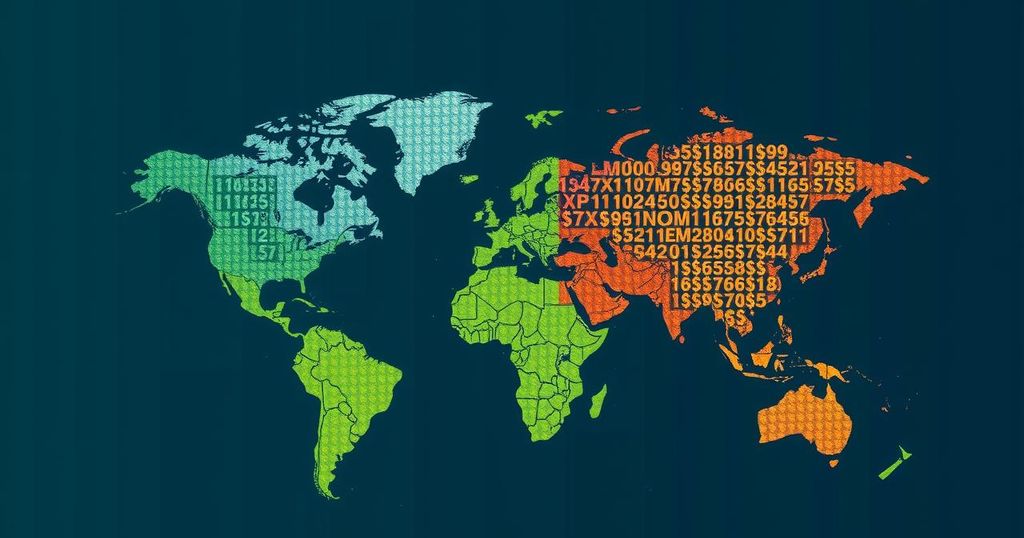At COP29 in Baku, wealthy nations pledged $300 billion annually in climate finance, yet many poor countries criticized this as inadequate compared to the needed $1.3 trillion. The conference underscored changing political realities as conservative governments threaten climate actions. Despite European leadership, skepticism remains about funding effectiveness and support for developing nations, alongside calls for accountability from historical polluters amid escalating climate challenges.
The topic of climate finance was brought to the forefront during the COP29 climate conference in Baku, where rich countries committed to providing $300 billion annually by 2035 to aid struggling nations. However, many attendees from poorer countries expressed disappointment, deeming this figure insufficient considering the estimated requirement of $1.3 trillion per year. Despite the promise from developed nations representing a slight increase from previous commitments, doubts lingered regarding its feasibility and the manner in which the funds would be allocated, underscoring a significant rift between political will and actual climate action.
The climate conference highlighted shifting political dynamics globally, particularly after Donald Trump’s election victory, raising concerns among activists about the potential rollback on climate measures by conservative governments in several Western countries. Nevertheless, Germany and the European Union reaffirmed their commitment to championing climate initiatives, albeit approaching funding with practicality. Statements made during the conference indicated a growing awareness of the geopolitical challenges tied to climate finance and a call for accountability among historic polluters.
Activists emphasized that support for developing nations should be seen as a moral obligation rather than a matter of political choice, given the disproportionate impacts of climate change on these regions due to historical emissions. As the climate crisis escalates, the shortfall in funding, particularly with natural disasters intensifying across the globe, reinforces the need for urgent and substantial financial commitments.
The apparent lack of political will to engage in meaningful climate financing has raised skepticism among observers, with some referring to the announced commitments as “creative accounting.” The financial landscape, which relies increasingly on multinational banks to meet financial commitments, has also been a point of scrutiny, as stakeholders consider the effectiveness of these institutions in driving impactful projects. The expectation of major contributions from international financial entities suggests a collaborative approach to financing, even as questions remain regarding transparency and accountability in fund allocation.
In summary, while COP29 marked a potential turning point in climate finance discussions, the substantial gap between announced funding and actual requirements suggests that more cohesive and ambitious action is necessary to address the ongoing climate crisis. Only through genuine commitment from wealthier nations and innovative financing solutions can the global community hope to equitably support vulnerable nations in their climate adaptation strategies. The discussion surrounding these commitments is crucial as the world grapples with increasing climate-related phenomena and an urgent need for effective solutions to mitigate these challenges.
The backdrop of COP29 in Baku is characterized by growing tensions regarding climate finance amidst changing political landscapes worldwide. As the founding promise of climate funding by developed countries is scrutinized, important considerations arise regarding historical responsibility for greenhouse gas emissions and the obligations of wealthy nations to support vulnerable countries. The discourse is further complicated by the geopolitical ramifications of recent elections and shifting domestic priorities which affect global climate commitments. This sets the stage for a deeper examination of financial commitments and the actions needed to navigate these complex realities, ultimately impacting how effectively the global community can respond to climate change.
In conclusion, the outcomes of COP29 reveal a critical moment for climate financing, where the pledges from wealthier nations, though an increase from past commitments, fall significantly short of actual needs. The obligation of rich countries to support poorer nations in confronting climate vulnerabilities is underscored by the urgent crisis being faced. Without a substantial shift in political will and financial accountability, the gap between pledges and reality may hinder meaningful progress in climate action on a global scale. The focus on flexibility and innovative financing through multinational banks presents a pathway forward, but only if accompanied by sincerity and transparency in commitments.
Original Source: www.france24.com






